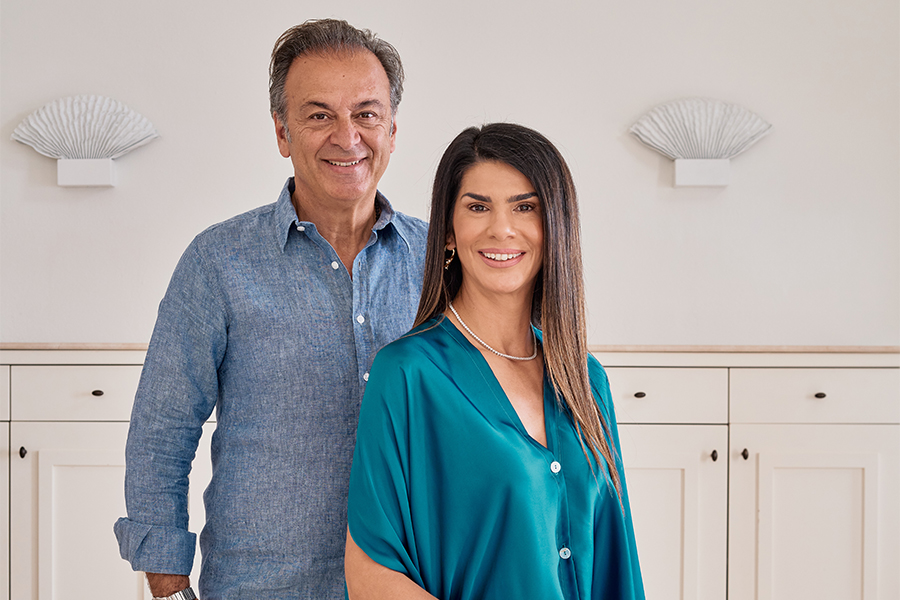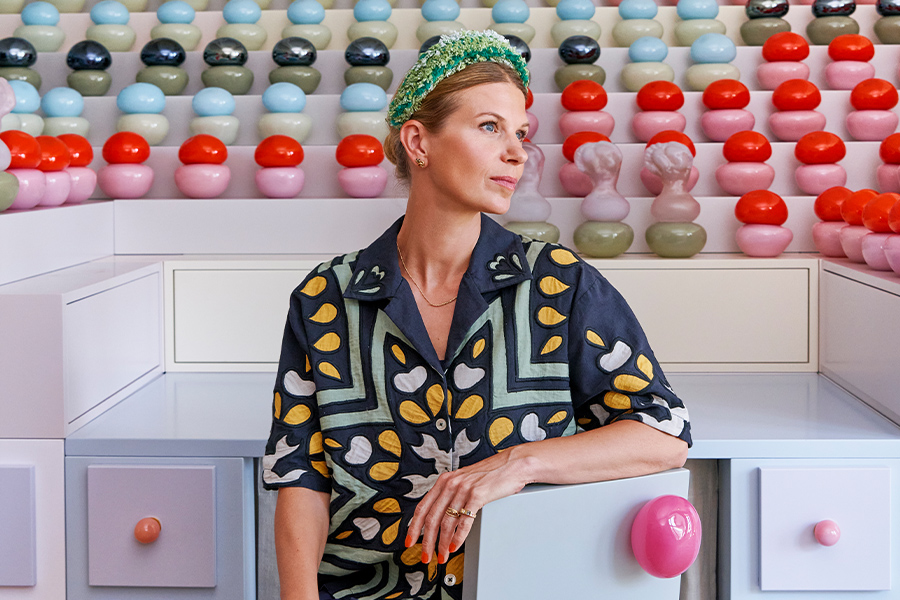Nearly a decade ago, the visionary Upper House, a luxury boutique hotel with commodious guestrooms incorporating a slate of natural materials opened in Hong Kong. Its tranquil, residential vibe was the antithesis of the classic, Asian-style properties that then prevailed, notes architect and designer André Fu, founder of local studio AFSO. Upper House was Fu’s first hotel project—his big break just a few years after launching his firm—embodying the comfort and storytelling that he thinks are at the core of hospitality: “It’s much more about the guest instead of the pursuit of a decorative environment,” Fu notes.
His holistic approach is shaped by his geographical upbringing. Reared in Hong Kong, he spent 14 years at school in the United Kingdom, where he elevated his childhood passion for drawing into a master’s degree in architecture from the University of Cambridge. “My exposure to both the East and West has empowered me to respond to different cultures in a much more receptive and organic way,” says Fu.
Consider the Kerry Hotel, the design-driven brand from Shangri-La Hotels and Resorts, on Hong Kong’s Kowloon waterfront. Working with local architect Rocco Yim and the Bangkok office of AvroKO on the hotel’s food hall, Fu describes it as an urban resort that is lush in scale, bringing together rich artwork and plant life, as well as such disparate materials as eucalyptus wood and bronze. At Hong Kong’s Murray Hotel, part of the Niccolo Hotels portfolio, Fu crafted Fook Lam Moon restaurant group’s 90-seat Guo Fu Lou. Set in a two-story pavilion beside the hotel’s front court, he considers it a “reinvention of a Cantonese dining room,” where an expansive outdoor terrace is set beneath the hotel’s courtyard heritage tree.
“A sense of place is no longer about things that are superficial,” he says. “People have to go a lot deeper into the thought process.” The recently opened Andaz Singapore, for instance, at the intersection of the Kampong Glam, Little India, and Bras Basah Bugis districts takes cues from the neighborhoods’ traditional shophouse architecture and eclectic dining experience through subtle elements like an abstract façade interpretation in the lobby and bright yellow guestroom doors. There’s also Alley on 25, the hub of the hotel, with seven distinct F&B options. Meanwhile, hotel Villa La Coste arrived in France last year on the grounds of an art, wine, and gastronomy-fueled estate in Provence, with Fu as the mastermind behind the restaurant, bar, library, and spa, where he instilled a sense of intimacy that resonates with the rest of the property.
The common thread running through these properties is elegant functionality. “Everyone is pursuing something Instagrammable, but there are many places that look amazing in a photo and when you physically experience it, it’s not that great,” Fu notes. He also relishes product design, injecting pieces and installations with the same type of narratives found in his layered spaces, whether it’s pop-ups for fashion brands like Louis Vuitton and COS, or crafting light fixtures for Lasvit and carpet for Tai Ping. “It’s a collision, almost, of different backgrounds, different aesthetics, to try to come up with something that is unique,” he points out.
Photography by Richard Haugton, Michael Weber, Andrew Loiterton, Geoff Lung, and courtesy of AFSO


